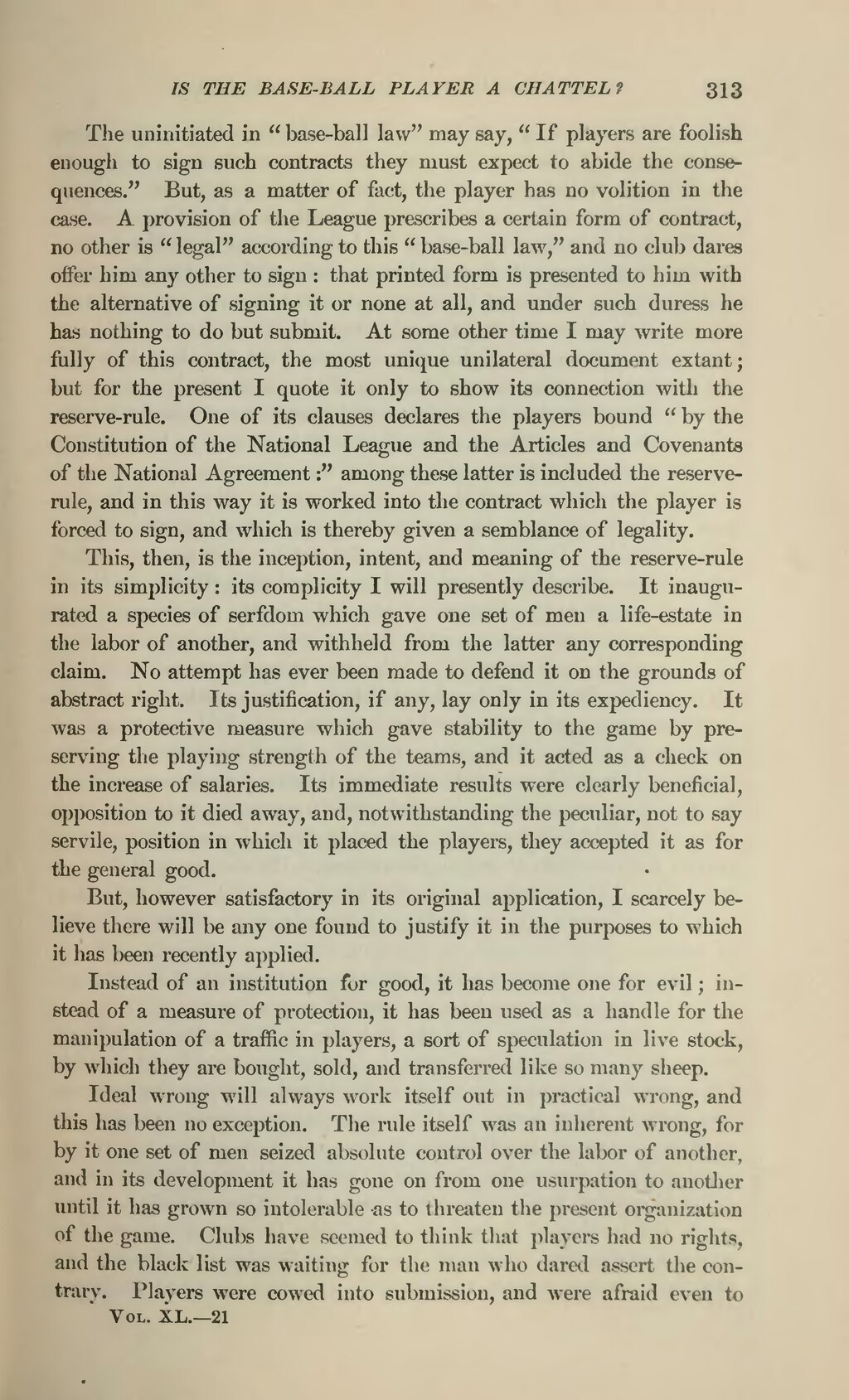The uninitiated in "base-ball law" may say, "If players are foolish enough to sign such contracts they must expect to abide the consequences." But, as a matter of fact, the player has no volition in the case. A provision of the League prescribes a certain form of contract, no other is "legal" according to this "base-ball law," and no club dares offer him any other to sign: that printed form is presented to him with the alternative of signing it or none at all, and under such duress he has nothing to do but submit. At some other time I may write more fully of this contract, the most unique unilateral document extant; but for the present I quote it only to show its connection with the reserve-rule. One of its clauses declares the players bound "by the Constitution of the National League and the Articles and Covenants of the National Agreement:" among these latter is included the reserve-rule, and in this way it is worked into the contract which the player is forced to sign, and which is thereby given a semblance of legality.
This, then, is the inception, intent, and meaning of the reserve-rule in its simplicity: its complicity I will presently describe. It inaugurated a species of serfdom which gave one set of men a life-estate in the labor of another, and withheld from the latter any corresponding claim. No attempt has ever been made to defend it on the grounds of abstract right. Its justification, if any, lay only in its expediency. It was a protective measure which gave stability to the game by preserving the playing strength of the teams, and it acted as a check on the increase of salaries. Its immediate results were clearly beneficial, opposition to it died away, and, notwithstanding the peculiar, not to say servile, position in which it placed the players, they accepted it as for the general good.
But, however satisfactory in its original application, I scarcely believe there will be any one found to justify it in the purposes to which it has been recently applied.
Instead of an institution for good, it has become one for evil; instead of a measure of protection, it has been used as a handle for the manipulation of a traffic in players, a sort of speculation in live stock, by which they are bought, sold, and transferred like so many sheep.
Ideal wrong will always work itself out in practical wrong, and this has been no exception. The rule itself was an inherent wrong, for by it one set of men seized absolute control over the labor of another, and in its development it has gone on from one usurpation to another until it has grown so intolerable as to threaten the present organization of the game. Clubs have seemed to think that players had no rights, and the black list was waiting for the man who dared assert the contrary. Players were cowed into submission, and were afraid even to
